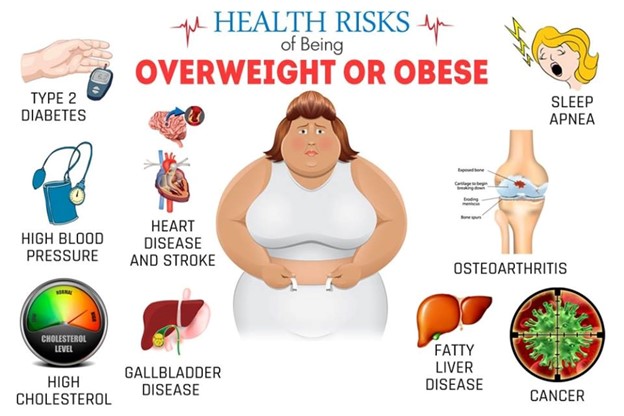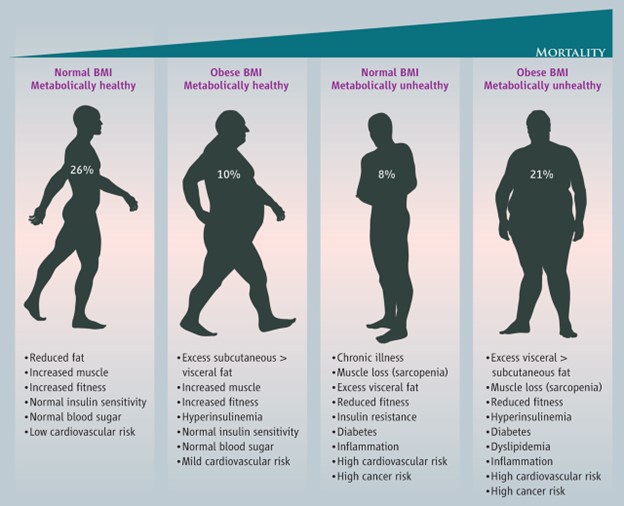Weight gain in youth is a complex health issue that can have long-term consequences on physical and mental well-being. As children and adolescents the challenges of growth, development, and changing lifestyles, understanding the potential risks associated with weight gain is crucial for promoting a healthy future and preventing chronic conditions in adulthood.
1. Impact on Physical Health:
Weight gain in youth can lead to a range of physical health risks, including obesity, type 2 diabetes, cardiovascular diseases, and musculoskeletal. Excess weight puts strain on the body’s organs and systems, increasing the likelihood of developing chronic conditions that can impact overall health and quality of life in the long run.
2. Psychological and Emotional Effects:
Beyond physical health implications, weight gain in youth can also have psychological and emotional effects, such as low self-esteem, body image issues, and a higher risk of depression and anxiety. Social stigma and peer pressure related to weight can further exacerbate mental health challenges, leading to long-lasting emotional consequences.

3. Developmental Concerns:
During the formative years of childhood and adolescence, weight gain can interfere with normal growth and development processes. Excessive weight can impact hormonal balance, skeletal development, and cognitive functioning, potentially affecting overall health and well-being as youth transition into adulthood.
4. Risk of Chronic Diseases:
Weight gain in youth is a key risk factor for developing chronic diseases later in life. Obesity, in particular, is strongly associated with an increased risk of conditions such as hypertension, high cholesterol, fatty liver disease, and metabolic syndrome, all of which can have serious implications for long-term health and quality of life.
5. Lifestyle and Behavioral Patterns:
Unhealthy weight gain in youth often reflects underlying lifestyle and behavioral patterns that contribute to sedentary habits, poor dietary choices, and inadequate physical activity. Addressing these factors early on is essential for promoting healthy weight management and instilling positive habits that can support lifelong well-being.
6. Social and Environmental Influences:
Weight gain in youth is influenced by a complex interplay of social, environmental, and genetic factors. Socioeconomic status, access to nutritious foods, family dynamics, cultural norms, and peer relationships all play a role in shaping dietary preferences, physical activity levels, and overall health outcomes in young individuals.
7. Preventive Strategies and Interventions:
Preventing weight gain in youth requires a comprehensive approach that addresses multiple factors contributing to excess weight. Encouraging balanced nutrition, regular physical activity, adequate sleep, and positive body image can help support healthy growth and development while reducing the risk of long-term health complications.

8. Supportive Environments and Resources:
Creating supportive environments that promote healthy lifestyles and provide resources for youth and families is essential in addressing weight gain and its associated health risks. Schools, communities, healthcare providers, and policymakers all have a role to play in fostering environments that prioritize health and well-being for all young individuals.
9. Education and Empowerment:
Educating youth about the importance of nutrition, physical activity, and self-care is key to empower them to make informed choices and take ownership of their health. By promoting health literacy, fostering resilience, and building positive relationships with food and body image, young individuals can develop healthy attitudes towards weight management and well-being.
10. Long-Term Health Outcomes:
The long-term health risks of weight gain in youth underscore the importance of early intervention, holistic support, and ongoing health monitoring to prevent adverse outcomes in adulthood. By addressing weight-related issues proactively and promoting healthy behaviors from a young age, we can empower youth to lead fulfilling lives free from the burden of weight-related health conditions.
Conclusion:
Navigating weight gain in youth requires a multifaceted approach that considers physical, emotional, social, and environmental factors influencing health outcomes. By understanding the long-term risks associated with weight gain and implementing preventive strategies and supportive resources, we can promote the well-being of young individuals and cultivate a healthier future for generations to come.




